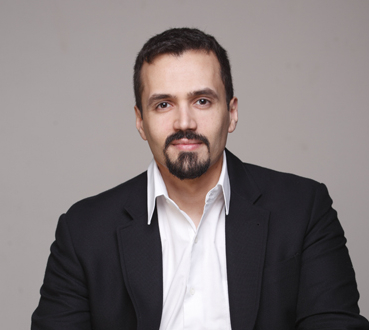
The Supreme Administrative Court, the highest court in Egypt, ruled a few days ago that the High Constitutional Court’s decision to dissolve the People’s Assembly, the lower house of Egypt’s parliament, was constitutional. That basically means that the game for a new parliament is on.
Islamist forces can look back positively on their successes in the last parliamentary elections, and seek to replicate, or even exceed that representation in the next parliament. What do non-Islamist forces have to look forward to? Their jubilation indicates they believe they can make a strong showing, which isn’t a foregone conclusion.
There are a number of things that one would hope any non-Islamist political party would be concerned with as they plan for elections, especially those parties dedicated to holding the present government to account within the democratic process. Here are a few:
1. In a country where more than 97 per cent of citizens consider religion to be important (according to reliable polls), non-Islamist forces cannot be silent about religion. Not by ‘doing religion’ but by depoliticising it, and making sure it is no longer considered as a partisan issue that can be used as a football.
If non-Islamist parties are able to essentially take religion out of the public arena as a partisan issue, by advocating the Azhari religious approach (not simply the bricks and mortars of the buildings) as Egypt’s essential Islamic heritage, they would be able to refocus the political arena on matters of policies and politics.
This requires a very clear policy on the role of the Azhar in the state (if at all), and identifying the Azhari religious approach as key to upholding Egypt’s traditional Islamic heritage. With the destruction of Sufi mausoleums in Libya, and the growing awareness of the cultural effects of some forms of Salafism, non-Islamists would be able to speak to, and for, far more Egyptians than any other party on this issue.
2. Far too often, the non-Islamist parties have put across the excuse in the media that they’ve only organised for a short amount of time, and need more time. This is true: but it is also essentially their own fault. The Freedom and Justice Party, as well as the smaller Salafi groupings, organised on a civil level, rather than a political one, for decades before the 25 January revolution. It is hard for many non-Islamist forces to hear but they have only themselves to blame for not being involved in civil society long before, and thus unable to capitalise on that work in political terms.
Nevertheless, they also need not be so pessimistic. In the presidential elections, very powerful forces within the country supported the two top candidates, resulting in the run-off between them. There was nothing comparable behind Hamdeen Sabahi, or Abul Fotouh. Yet, they came in third and fourth. That proves conclusively that it is possible to earn substantial amounts of political currency in a short amount of time.
3. The presidential elections have another clear lesson to teach the non-Islamist parties. Had their two main presidential candidates been on the same ticket, they would have probably beaten both Shafiq and Morsy, and quite easily. Every step of the way, division and disunity between different non-Islamist forces has been far more damaging to them than the political activity of Islamist forces. In these coming elections, they have to learn this lesson once and for all. Egypt is at a critical point in its transition and it requires that these forces be able to stand above petty disagreements in order to move Egypt’s development forward. The fewer coalitions there are, the better.
4. Ideology does have to play a role in the development of these new forces. An ‘anti-Islamism’ is not going to be sufficient for anything. These forces need to move from being ‘non-Islamist forces’ that are seeking to only hold the current government to account, to being fully-fledged political parties. As they do so, there are two things they must keep in mind: sincerity, and rootedness. A common critique of many of these groupings is that they have been willing to betray their own stated principles in order to hold back the Islamists, even to the extent of backing a representative of the former regime (Shafiq) that the revolution overthrew. That critique can never be given the opportunity to stick again. Secondly, these groupings have to show they belong to Egypt in every single way: their staying power is one thing (too many Egyptians suspect that these non-Islamist forces would leave Egypt if the country becomes much more difficult). But their ideological rootedness is another. They need to be able to show to the Egyptian public that their political ideology is indigenous Egyptian and not an import.
5. The non-Islamist parties need to consider, fundamentally, what they are going to be doing outside of the election cycle. At present, it does not seem like they do very much, which contributes to their handicap vis-à-vis Islamist forces. This country’s state bureaucracy might even be characterised as more of a burden than a help, and civil society needs to take up as much of the burden as possible. Will these non-Islamist parties participate in that endeavour, or only be around when its time to vote and get a piece of the power pie? Egyptians will notice their choice.
Even within the realm of actual policy and political life, it is not clear what the non-Islamist parties will be doing outside of the election cycle. Many within their ranks do indeed have detailed policies in mind, but few of these are making it into the public arena for discussion. More importantly, the impression among much of the populace is that non-Islamists simply do not have a political project with specifics and particulars: only slogans against, and opposition to, existing forces. That must change.
Non-Islamist forces need to realise that there is a long road ahead of them. Far too many among their ranks seem to have come to the conclusion that the revolution is over; that it ended once the current president took office. If that is what they believe, they need to question if they ever truly believed in the revolution in the first place. There is a lot of work yet to be done. The recognition of that alone is a revolution.
It is in the interest of Egypt to have a strong political opposition in parliament to hold the government, and the presidency, to account. It would be a great detriment for the development of Egypt’s political transition to democracy if greater accountability and transparency are not taken seriously as immediate, pressing goals.
None of that is assured without a strong opposition in parliament , and that is the responsibility of this country’s non-Islamist forces. They owe it to Egypt to live up to that duty.
“Dr H A Hellyer, a non-resident fellow at the Brookings Institution, is a Cairo-based specialist on Arab affairs, and relations between the Muslim world and the west. A fellow of the Institute of Social Policy and Understanding, he was previously senior practice consultant at Gallup, and senior research fellow at Warwick University. Find him online @hahellyer and www.hahellyer.com.”




